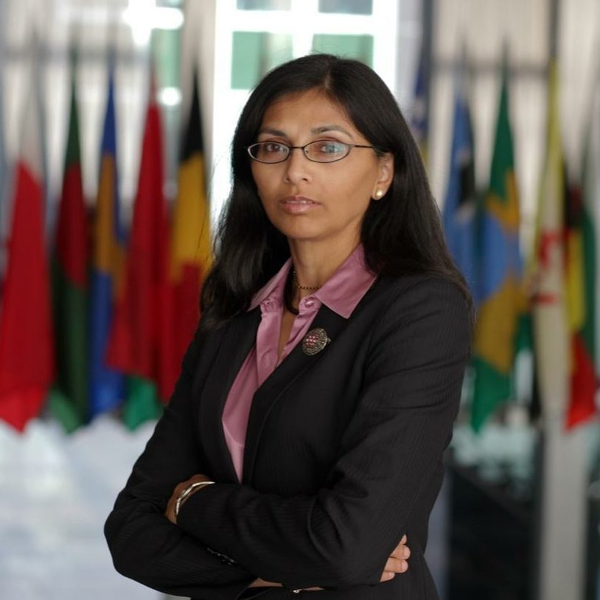The signing of the Industrial Security Annex between India and the US will deepen industry collaboration, enable release of more advanced technology and information to India and help make it part of global supply chain in the defence sector, head of a top India-centric American business advocacy group has said.
During the 2nd edition of the 2+2 dialogue held last week, India and the US agreed to further expand their defence ties and concluded the crucial Industrial Security Annex (ISA).
Defence Minister Rajnath Singh had said that the conclusion of the ISA with the US will provide the necessary framework for pursuing the co-development and co-production linkages in the defence manufacturing centre.
“I think the most important outcome (of 2+2) was the signing of the ISA. I believe the ISA signing will make it possible to deepen the industry collaboration and to enable the release of more advanced technology and information to Indian industry that is working in partnership with US industry on a number of these projects,” Nisha Desai Biswal, president of US-India Business Council, said.
“If we want to build a defence supply chain in India, and have India be a global manufacturer and supplier with the US products and technologies, I think the ISA is incredibly important,” Biswal, who headed the South and Central Asia Bureau of the State Department during the Obama Administration, told PTI in an exclusive interview.
Biswal said that things are also moving forward with regard to the fourth foundational agreement Basic Exchange and Cooperation Agreement or BECA.
Referring to the joint statement issued by the two countries after the conclusion of the 2+2 ministerial dialogue, she said that it was reflective of the priority being given by the two governments to the strategic and the security relationship.
“It was a very robust joint statement particularly on a number of outcomes on the defence side that were highlighted. I was really pleased to see how there are a number of outcomes on the Defense Trade Technology Initiative (DTTI),” she said.
The DTTI, she said, has been an important mechanism and avenue for collaboration between the two militaries, and also between two defence industries.
The defence trade between the US and India has been a really important part of the overall relationship, both because of its security implications, and also because of the important economic impact on creating an important trade relationship. Defence trade is a big part of the US-India trade relationship, she added.
Asserting that India-US relationship has experienced continual upward trajectory for the past two decades, she said that the United States in the past has had two plus two dialogues only with its treaty allies.
“India is the first non-treaty ally with whom we have a two plus two dialogue, a strategic and security dialogue,” she said.
“We have seen over successive administrations that we have been building on that architecture of the US-India relationship and adding to it. And so it would have started with a strategic dialogue, which was established with Secretary (of State Hillary) Clinton. Secretary (of State John) Kerry took that strategic dialogue and made it into a Strategic and Commercial dialogue, which was akin to what we had had in place with China, which was a strategic and economic dialogue,” she said.
The Trump Administration with Secretary of State Mike Pompeo went down the path of creating a strategic and security dialogue so that “we could take our foreign policy and national security priorities between our two countries and find areas of convergence,” Biswal said.
Observing that it has been “really gratifying” to see that the relationship has continued to deepen, Biswal said while the security and strategic priorities have been fairly clearly understood, “we do need to do more work on the trade and economic side” of the house.
“On the defence side, we want to see defence trade pick up more. There is great potential on that. There are a number of important defence deals that are in various stages of the process in India,” she said.
On the broader set of trade and economic issues, Biswal asserted that that there’s been a lot of work done.
“We’d like to see a mini trade deal find conclusion and get announced. I know that it’s close. I know that the two sides I’ve been talking and that they are hopefully reaching a place where they can announce something in the near future,” she said.
The two countries, she said, needs to set a more ambitious target for themselves. “The US and India can do more and should do more, tackle bigger issues and really think about how we deepen that trade partnership,” she said, adding that she would like to see the US and India tackle a larger trade agreement, and really pursue a bilateral free trade agreement.
“It may not be comprehensive, but you have to start somewhere. It may not happen right away, but you have to start down that path. I think that we would like to see US-India trade and investment really take off,” he said.
Noting that a slowing Indian economy has posed some challenges, she said on the other hand it can also create some opportunity.
Source: MC
Image Courtesy: Sustain.org
You may also like
-
IAF Aircraft Set Course For Exercise Eastern Bridge VII At Oman
-
India-us Working Together In Areas Like Critical Minerals, Supply Chains And Advanced Technologies: Shri Piyush Goyal
-
Defence Secretary to co-chair 5th India-Philippines Joint Defence Cooperation Committee meeting in Manila
-
2nd India-Japan Finance Dialogue held in Tokyo on 6th September, 2024
-
Prime Minister, Shri Narendra Modi welcomes Crown Prince of Abu Dhabi
